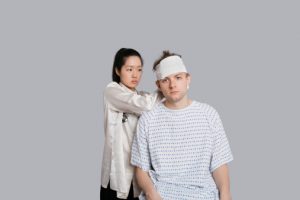 Individuals living with a brain injury experience difficulties when it comes to sleeping. Many of these patients may not even be aware that they have sleep problems. The study revealed these patients may experience daytime sleepiness for up to 18 months following the injury. Furthermore, these sleep problems may negatively impact daytime performance at work, school, etc.
Individuals living with a brain injury experience difficulties when it comes to sleeping. Many of these patients may not even be aware that they have sleep problems. The study revealed these patients may experience daytime sleepiness for up to 18 months following the injury. Furthermore, these sleep problems may negatively impact daytime performance at work, school, etc.
Lead researcher Dr. Lukas Imbach said, “Sleep-wake disorders are highly prevalent after traumatic brain injury of any severity, but are difficult to diagnose because many affected patients are unaware of their disorder.”
Advertisement
Annually, nearly 1.7 million brain injuries occur in the U.S., and there is evidence that the numbers are rising worldwide.
Sleep problems have been linked to changes in mood, depression, and learning and memory difficulties. Imbach added, “A link between these neuropsychiatric problems and sleep disturbances after traumatic brain injury is absolutely possible, although our study did not test this hypothesis.”
The study did provide evidence that sleep-wake disturbances after a traumatic brain injury (TBI) can occur over an extended period of time, yet they are often neglected by patients. For this reason, “we believe that our observations are important for any clinicians and neurologists involved in the management of [brain] trauma patients,” Imbach explained.
The researchers followed 31 TBI patients with diverse brain injury severity for 18 months. TBI patients were compared to 42 healthy controls. The researchers found that TBI patients were more likely to suffer excessive daytime sleepiness, yet when asked the patients did not report feeling any sleepier compared to the controls. TBI patients were also found to require at least eight hours of sleep a night, compared to healthy controls who can suffice with seven.
Dr. Brian Edlow who coauthored an accompanying journal to the study added, “Doctors who take care of patients with post-traumatic sleep disorders often rely on patients to report their own symptoms when deciding whether to perform a formal diagnostic sleep study. However, if patients are not recognizing their own sleep disorders or their own daytime sleepiness, we as clinicians need to rethink our approach to the assessment and diagnosis of post-traumatic sleep disorders.”
Advertisement
Additional research is required to better understand the sleep-wake disturbance and daytime sleepiness and how they affect quality of life.
Also, read Bel Marra Health’s article on High fructose diet slows brain injury recovery, affects memory and learning.
Sources:
http://www.neurology.org/content/early/2016/04/27/WNL.0000000000002697.short
